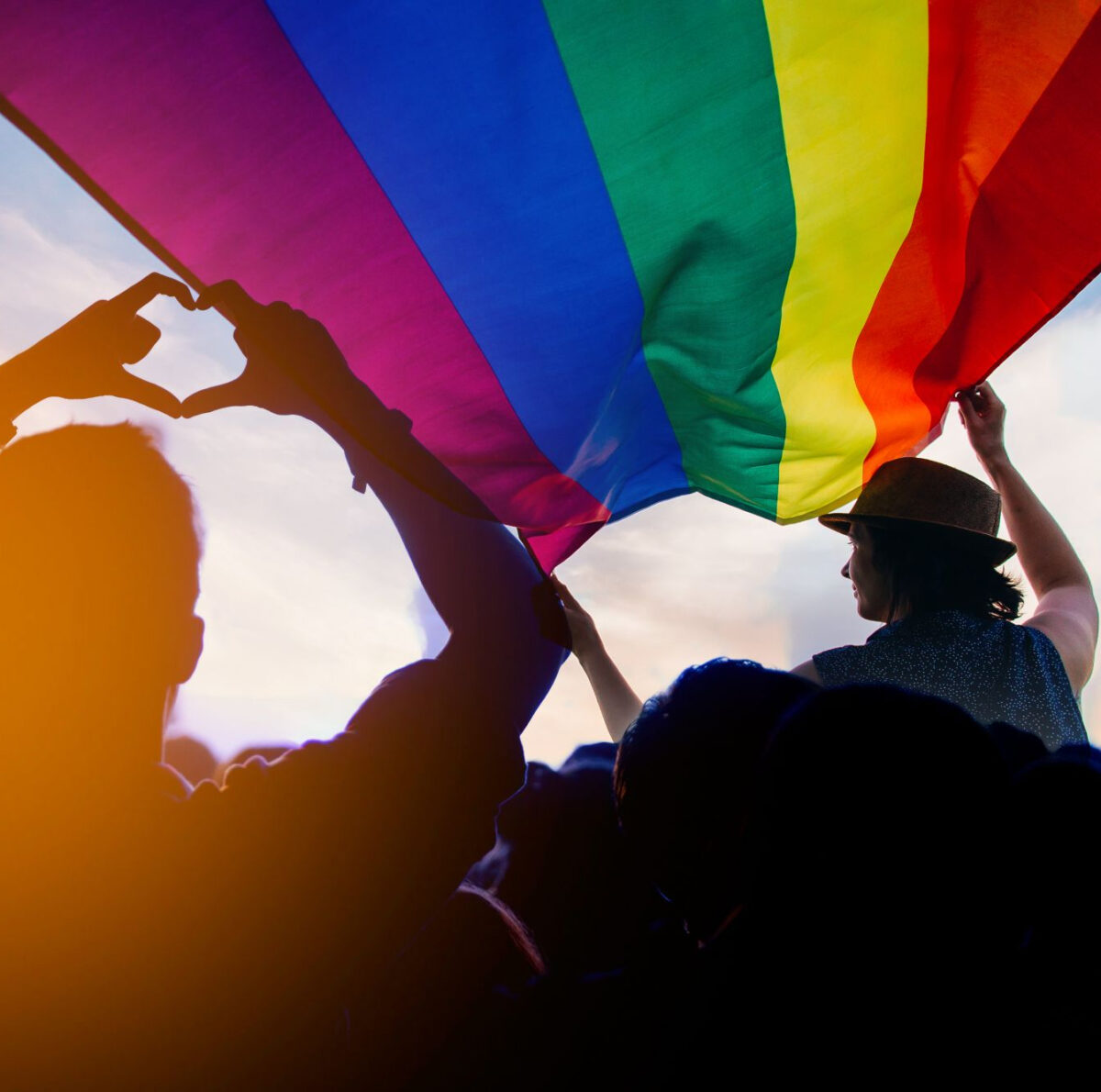Psilocybin intersects with queer healing, both through rebellion and its potential for identity exploration, trauma recovery, and self-acceptance.

Every June, rainbow flags wave in honor of LGBTQIA2S+ history, visibility, and resilience. Behind the celebration lies a profound story of struggle with people pushing back against systems that tried to erase them, and creating healing communities in response.
Similarly, the modern psychedelic renaissance has emerged as a response to decades of prohibition and cultural stigma. For many, psychedelics are far more than a way to “trip.” They’re vehicles for reclaiming power, reframing identity, and healing trauma that society often fails to acknowledge.
This blog dives into how psilocybin, the psychoactive compound in psychedelic mushrooms, intersects with queer healing, not just through a shared backdrop of rebellion, but also through a growing body of research supporting its potential for identity exploration, trauma recovery, and self-acceptance.
Both Pride and psychedelics share roots in defiance. The 1969 Stonewall Uprising wasn’t a celebration, it was a protest against police violence and erasure. Meanwhile, during the same era, activists and thinkers were turning to psychedelics like psilocybin and LSD to challenge entrenched norms and explore consciousness on their own terms.
Queer icons such as Allen Ginsberg, William Burroughs, and Brion Gysin openly experimented with psychedelics. Ram Dass (formerly Richard Alpert) later came out as bisexual and wove his psychedelic insights into his spiritual journey. These were not isolated figures, both movements emerged from the same cultural fissures in search of liberation.
Current research confirms what many LGBTQIA2S+ individuals have long felt: psychedelics can deepen authenticity, emotional safety, and self-compassion.
If the above list feels “light” in terms of queer-specific psychedelic research, we share this sentiment. Unlimited Sciences is actively working to give voices to people that aren’t well-represented in the research landscape, and we’ve already dedicated many years to amplifying the LGBTQIA2S+ community. It’s clear that psychedelics may be uniquely meaningful for individuals navigating queer identities and experiences of trauma.
P.S. You can donate to our cause for more psychedelic research that supports queer communities.
In simple terms, psilocybin loosens the grip of rigid self-concepts.
Neuroscience shows that psilocybin quiets activity in the default mode network (DMN), a brain system linked with self-criticism, rumination, and ego structures. This disruption allows different brain regions to communicate more freely, creating space for fresh insights and perspectives.
For someone grappling with internalized shame or identity-based trauma, this can feel like a shift in perspective, revealing truths previously overshadowed by fear. It’s like shaking up a snow globe: when the dust settles, the internal landscape is transformed, less rigid, more compassionate.
That’s why psilocybin is being studied for depression, PTSD, and end-of-life anxiety. But for queer individuals, its power often extends beyond clinical diagnoses, it’s about affirming the right to exist as one truly is.
Queer culture has long known how to build worlds outside mainstream acceptance. We form chosen families, mutual aid networks, and safe spaces where we can thrive without apology. Psychedelic communities often reflect these same values, gathering in circles to hold ceremony, create intention, and support each other’s journeys.
Both queer and psychedelic circles center consent, care, and vulnerability. Where they intersect, people often find spiritual homes in their own bodies again.
Queer and psychedelic communities both cultivate resilience by challenging dominant narratives and dismantling stigma. In queer circles, activism often centers on securing rights and visibility, while in psychedelic spaces, advocacy fights for recognition of healing practices and responsible access. Both movements lean on grassroots networks to educate, support, and empower individuals who have been marginalized.
Through shared experiences of navigating societal exclusion, whether due to sexuality, gender identity, or altered states, members learn to trust collective wisdom. These communities foster advocacy not only for external acceptance but also for internal liberation, helping people reclaim agency over their bodies, minds, and identities.
Queer spaces and psychedelic circles both emphasize radical care, crafting environments where people can show up authentically and be held without judgment. Whether it’s affordances like peer support in LGBTQIA2S+ centers or integration circles after a journey, these communities prioritize emotional safety and collective healing.
In both contexts, relationships are built on trust and intentional listening, creating networks that uplift marginalized voices and honor each person’s experience. When these values converge, individuals often discover deeper connections, to themselves and to others, that reinforce a profound sense of belonging.
If you’re considering psychedelics as part of your healing journey, here are some practical suggestions:
Pride and psilocybin share more than a spirit of resistance, they offer a blueprint for liberation through healing. Both teach us to defy erasure and demand the right to exist in truth.
Clinically, psychedelic therapy shows promise not only for trauma relief, but also for cultivating self-love, connection, and joy. For LGBTQIA2S+ communities, this isn’t just therapeutic, it’s revolutionary.
As we honor the past and celebrate this Pride, may we commit to healing, not just as individuals, but as communities. May we continue the fight for visibility with the fierceness it deserves, and embrace the wholeness we all deserve.
If you’re looking for personalized guidance and support before or after a psychedelic experience, the Unlimited Sciences Psychedelic Info Line offers free, 1:1 support for answering questions about psychedelic safety, integration, and emotional processing.
No comment yet.
Join our email list and get immediate access to part one of our psilocybin guide. You’ll also get the latest in how we’re bridging the gap between science and soul: psychedelic research updates, real-world findings, community-driven education, personal stories and expert insights on natural medicine.
Advancing Real-World Psychedelic Research and Science-Backed Education
Unlimited Sciences is provided with a nonprofit status by fiscal sponsorship through Realm of Caring Foundation.
Federal EIN: 46-3371348.
© 2025 Unlimited Sciences. All Rights Reserved.
Designed by Gloss